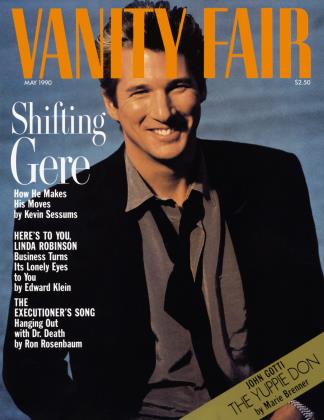Sign In to Your Account
Subscribers have complete access to the archive.
Sign In Not a Subscriber?Join NowGood Lord
The daughter of a pre-revolution government official, Bette Bao left China for the United States when she was eight years old. She returned in 1985 as the wife of the representative of her adopted country, U.S. Ambassador Winston Lord, and as the author of two best-selling books about growing up Chinese-American. She had a half-finished novel in her suitcase and plans for a Beijing "diary," but the book that emerged from the three and a half years she spent in China, Hi Legacies: A Chinese Mosaic (Knopf), is neither novel nor autobiography. The life of an ambassador's wife, Lord claims, didn't lend itself to writing fiction. And though she tried to work on a diary, she felt, she says, "as if a third eye was watching me. Writing about people I knew—what would be the effect on them? I'd shave off a little, shave off a little more. I was self-censoring, like most writers in Communist countries."
During the last months of their tour of duty, the embassy had to be renovated, and what might have seemed an irritating inconvenience to most women in Lord's position turned out to be a boon for her. She'd been collecting intimate, sometimes politically outspoken stories dating back to the Long March in 1934 from Chinese friends and acquaintances as material for her novel, and now that she was relieved of many of her social functions, she was able to focus on the power and potential of these fragments. By the time she left Beijing, she had hundreds of moving accounts of the suffering the Chinese have endured since the revolution, and scarcely had she arrived back in America last spring when Deng Xiaoping's government crushed the greatest pro-democracy demonstrations in China's history. The massacre spurred Lord to complete her "mosaic" in record time, in order to let the world know "that Tiananmen Square wasn't sparked by something of the moment, it was the residue of four decades."
ELISE O'SHAUGHNESSY
 View Full Issue
View Full Issue


















Subscribers have complete access to the archive.
Sign In Not a Subscriber?Join Now